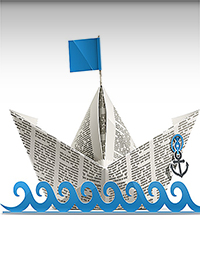| Political Journalists Have Themselves to Blame for Sinking Credibility |
 |
|
By David Harsanyi
Friday, December 15 2017 |
"Our record as journalists in covering this Trump story and the Russian story is pretty good," legendary reporter Carl Bernstein recently claimed. Pretty good? If there's a major news story over the past 70 years that the American media has botched more often because of bias and wishful thinking, I'd love to hear about it. Four big scoops recently run by major news organizations — written by top reporters and, presumably, churned through layers of scrupulous editing — turned out to be completely wrong. Reuters, Bloomberg, The Wall Street Journal and others reported that special counsel Robert Mueller's office had subpoenaed President Donald Trump's records from Deutsche Bank. Trump's attorney says it hadn't. ABC reported that candidate Trump had directed Michael Flynn to make contact with Russian officials before the election. He didn't (as far as we know). The New York Times ran a story claiming that K.T. McFarland, a former member of the Trump transition team, had acknowledged collusion. She hadn't. Then, CNN topped off the week by falsely reporting that the Trump campaign had been offered access to hacked Democratic National Committee emails before they were published. It wasn't. Forget your routine bias. These were four bombshells disseminated to millions of Americans by breathless anchors, pundits and analysts, all of whom are feeding frenzied expectations about Trump-Russia collusion that have now been internalized by many as indisputable truths. All four pieces, incidentally, are useless without their central faulty claims. Yet there they sit. And these are only four of dozens of other stories that have fizzled over the year. If we are to accept the special pleadings of journalists, we have to believe these were all honest mistakes. They may be. But a person might then ask: Why is it that every one of the dozens of honest mistakes is prejudiced in the very same way? Why hasn't there been a single major honest mistake that diminishes the Trump-Russia collusion story? Why is there never an honest mistake that indicts Democrats? Maybe the problem is that too many people are working backward from a preconception. Maybe newsrooms have too many people who view the world through an identical prism — which is to say they believe he stole the election with the help of Russians. And perhaps the president's constant lashing out at the media has provoked some newsrooms to treat their professional obligations as a moral crusade rather than a fact-gathering enterprise. For instance, the CNN reporters who wrote the DNC story, Manu Raju and Jeremy Herb, contend they had two sources who told them Donald Trump Jr. was offered encryption codes to look at hacked DNC emails. They both must have lied to them about the same date on the same email. CNN says that the duo followed "editorial process" in reporting the piece. This brings three lines of questioning to mind. First: Do news organizations typically run stories about documents they've never authenticated? If so, what other big stories over the past few years have been run based on unauthenticated documents? Can they point to a single story about the Obama administration CNN has written using a similar process? What part of CNN's editorial guidelines deals with this sort of situation? Second: Why would two independent sources lie about a date on the email to Trump Jr. if they didn't want to mislead the public? And how independent could they really be? How many stories regarding the Russian-collusion investigation has CNN run from these same sources? Three: If sources lie to you, why not burn them? There may be good reasons to avoid exposing a dishonest source. Perhaps it will scare away legitimate whistleblowers. Perhaps reporters want to preserve relationships with people like Adam Sch — er, with those in power — because they may help on other stories in the future. And at the end of the day, you're in contest for information. But these people have put the reporters' reputation — even their jobs — in danger. Moreover, they have engaged in a serious abuse of the public trust and an abuse of power. Who knows how many of these mistakes, spread over numerous outlets, came from the same sources? This seems newsworthy. When honest mistakes are found, the reflex of many political journalists has been portraying themselves as sentinels of free speech and democracy. Often they will attempt to do this by contrasting their track record on truth with that of Donald Trump. Yes, Trump is a fabulist. His tweets can be destructive. And maybe one day Robert Mueller will inform us that the administration colluded with Russia. What it has not done up to this point, however, is undermine the ability of the press to report stories accurately. Trump didn't make your activist source lie. The fact that many political journalists (not all) have a political agenda is not new (social media has made this fact inarguable), but if they become a proxy of operatives who peddle falsehoods, they will soon lose credibility with an even bigger swath of the country. They will have themselves to blame. David Harsanyi is a senior editor at The Federalist and the author of the forthcoming "First Freedom: A Ride through America's Enduring History with the Gun, From the Revolution to Today." |
Related Articles : |
























